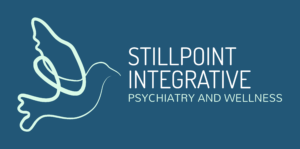Obsessive-Compulsive Disorder (OCD) is a mental health condition characterized by intrusive thoughts (obsessions) and repetitive behaviors (compulsions).
These symptoms can significantly impact daily functioning, leading to distress and interference in personal, social, and professional life.
Symptoms of OCD
OCD manifests in a variety of ways, but its core features include:
- Obsessions: Unwanted, persistent thoughts, images, or urges that cause anxiety. Common themes include contamination fears, harm-related thoughts, or an intense need for symmetry.
- Compulsions: Repetitive behaviors or mental acts performed to reduce anxiety associated with obsessions. Examples include excessive handwashing, checking locks repeatedly, or mentally counting.
- Distress and Interference: The cycle of obsessions and compulsions consumes time and often interferes with normal functioning.
Causes and Risk Factors
The exact cause of OCD is not fully understood, but research points to a combination of genetic, neurobiological, and environmental factors:
- Genetics: Family studies suggest a hereditary component.
- Brain Structure and Functioning: Differences in brain circuits related to impulse control and anxiety regulation.
- Environmental Triggers: Stressful or traumatic events may exacerbate symptoms in predisposed individuals.
Diagnosis and Treatment
Diagnosis
A clinical diagnosis of OCD is made by a mental health professional based on symptom severity, duration, and impact on daily life.
The DSM-5 criteria require that obsessions and compulsions be time-consuming (taking more than one hour per day) or cause significant distress.
Treatment Approaches
OCD treatment often involves a combination of therapy, medication, and lifestyle interventions:
- Cognitive-Behavioral Therapy (CBT): Specifically, Exposure and Response Prevention (ERP) is the most effective therapeutic approach. It helps individuals confront their fears and resist compulsive behaviors.
- Medication: Selective serotonin reuptake inhibitors (SSRIs) like fluoxetine, fluvoxamine, and sertraline are commonly prescribed.
- Holistic Approaches: Nutritional support, exercise, mindfulness techniques, and stress reduction strategies can enhance treatment outcomes.
Living with OCD
Managing OCD requires ongoing effort, and individuals may benefit from support groups, structured routines, and professional guidance.
Early intervention improves prognosis, and with the right strategies, individuals can regain control over their lives.
If you or someone you know struggles with OCD, seeking professional help can be the first step toward relief and improved well-being.

Andrew Jecklin, PMHNP-BC, Owner
Founder of Stillpoint Integrative Psychiatry and Wellness, and with full prescribing authority in Virginia, Andrew has well over 20 years of experience in healthcare focused on the connection of mind and body. A father of 5 kids, he resides in Harrisonburg, Virginia with his wife and family.
